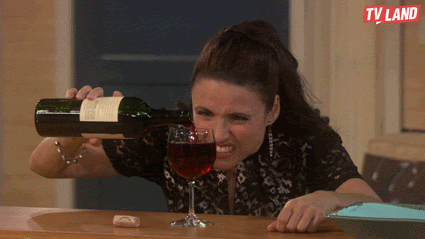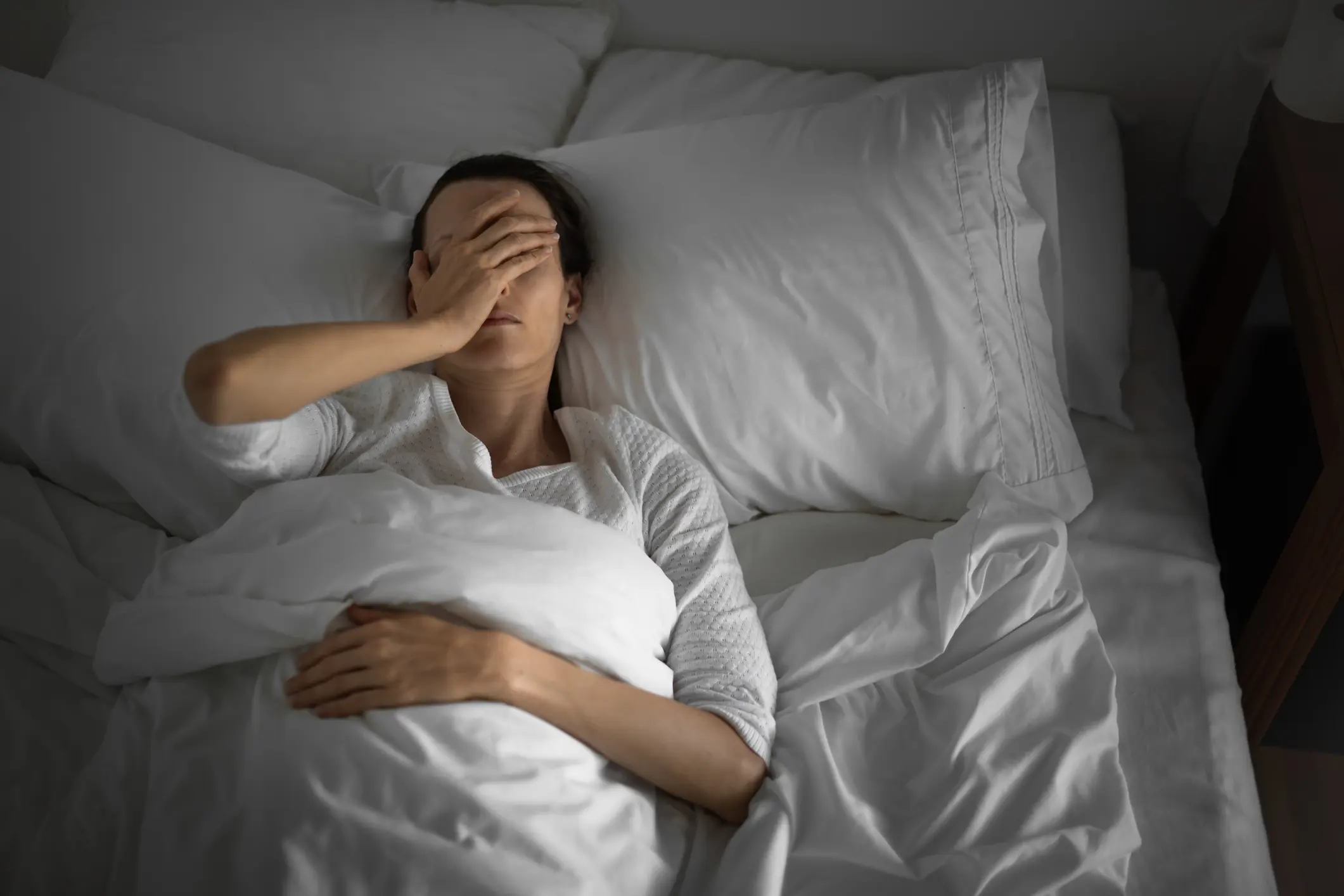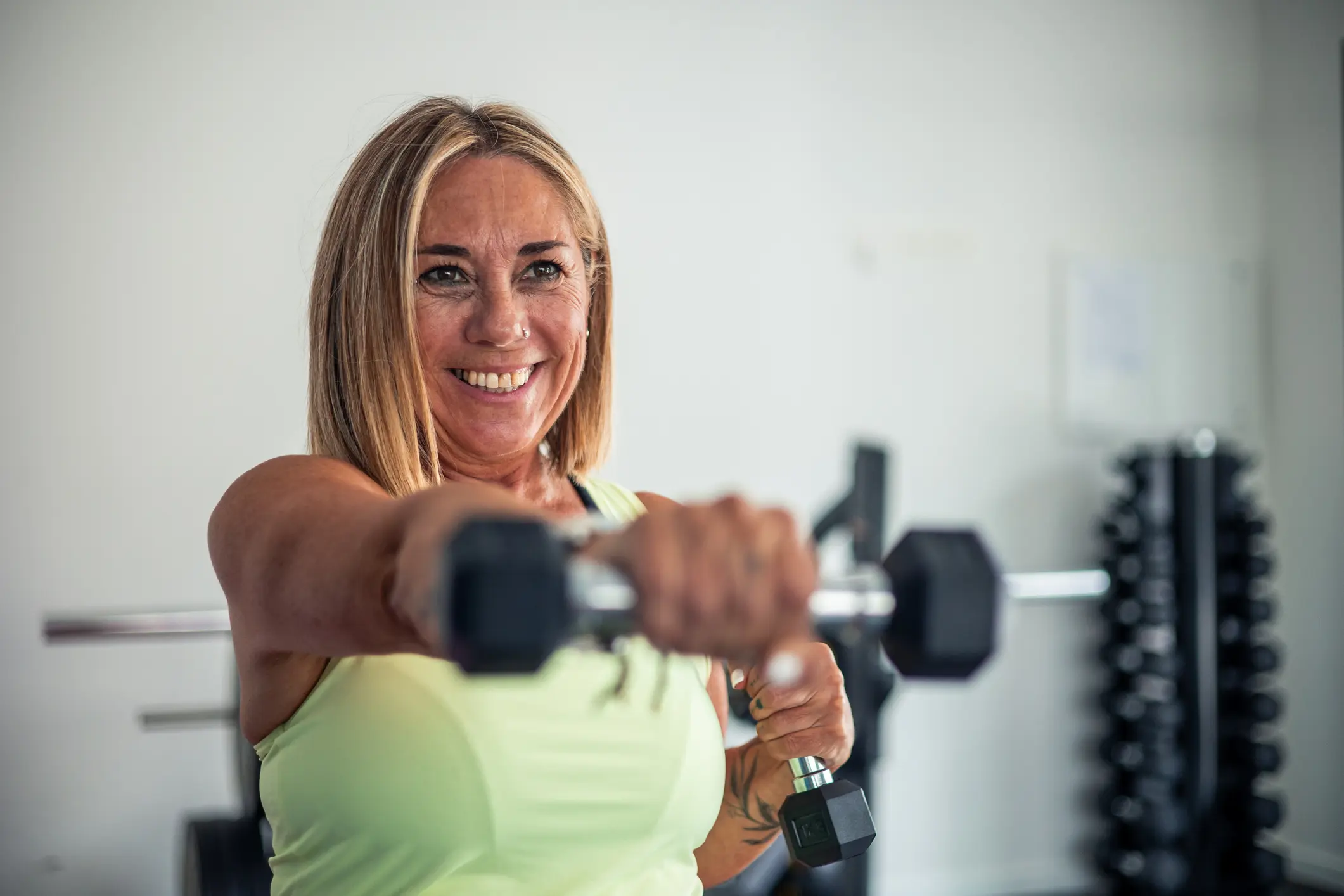
7 min read
Navigating menopause and alcohol can be a sensitive, complex, and personal topic. But it’s also an important one.
So, in honor of National Alcohol Awareness Month, we partnered with Tempest, an alcohol recovery program founded by the awesome Holly Whitaker to explore the intersection of menopause and alcohol and hear from real women about their lived experiences.
Are alcohol and menopause a good mix? Let’s talk about it without shame or stigma. Liquor isn’t always predictable; neither is menopause. And while menopause is a natural part of life, living in a pandemic is not.
Common menopausal symptoms include hot flashes, night sweats, exhaustion, depression, and weight gain. What’s tricky is that the same list of symptoms can be caused or exacerbated by Coronaphobia, a new disorder with emotional shifts—similar to menopause and problem drinking.
Unfortunately, one supposed “cure” for anxiety has long been, “Have a drink, you’ll feel better.” However, having one drink can lead to another and another, especially during the pandemic.
Defining Amounts of Alcohol
We know that drinking in moderation is a far better choice than binge drinking. However, not everyone knows what the amounts are. The National Institute on Alcohol Abuse and Alcoholism (NIAAA) defines levels of drinking for females as:
Moderate: 1 drink or less per day
Binge Drinking: 4 or more drinks in 2 hours
Heavy Drinking: 3+ drinks in 1 day, or 7+ drinks per week
Alcohol Use Disorder (AUD): An impaired ability to stop or control alcohol use despite adverse social, occupational, or health consequences.
NIAAA defines one standard drink as:
12 fluid ounces of regular beer (5% alcohol)
8–9 fluid ounces of malt liquor (7% alcohol)
5 fluid ounces of wine (12% alcohol)
1.5 fluid ounces of distilled spirits, i.e., gin, rum, tequila, vodka, whiskey (40% alcohol)
Symptoms and Their Source
Whether our discomfort is due to menopause or navigating the fear and grief that this devastating virus has wrought, turning to alcohol as a “solution” may create more problems than it solves. We reached out to a cross-section of women between the ages of 40 to 50 and older on how they are dealing with menopause symptoms and their drinking habits. Here are helpful answers that stood out amidst the avalanche of replies.
Changes in Alcohol Tolerance
One of the most common responses we received was about changes in tolerating amounts and types of alcohol. (Editor’s Note: Some of the women quoted here preferred to protect their privacy by using only a first name and omitting their occupation and where they live.)
“I was ‘peri’ before my hysterectomy,” says Jo, a 46-year-old nonbinary American freelancer living in France. “I had to give up fermented alcohols (beer and wine) but suddenly had a higher tolerance for distilled liquor.”
Tania Rogers says, “I became super intolerant to booze at around age 40. I couldn’t drink half a glass without feeling drunk, having a hangover the next day, and feeling crappy for several days. So, I stopped drinking entirely. That seems to be making perimenopause very easy. At least so far!”
Zoe Zolbrod, author of The Telling, says, “I’m still getting monthly periods but not for long. Beer is what I tolerate most easily. But bourbon and white wine are my other go-tos. My tolerance is lower. One drink is usually okay.”
Dog lover Dayna Crozier, 41, says, “I’ve suddenly become alcohol intolerant this year. I don’t know if I’m perimenopausal or if this is some post-COVID stuff. I was sick in early March 2020, before testing. Ever since then, I can’t drink.” She told me she is wondering if her second vaccine will set her back to “normal.”
Amy Fisher Lutz, 51, says, “I never connected it to menopause, but my tolerance has definitely decreased in recent years. Two summers ago, at our favorite go-to restaurant, I had the same drink I’ve ordered dozens of times before over the past 15 years and promptly went home and threw up!”
Red Wine, Headaches, and Migraines
“I can’t drink red wine anymore without a blinding headache,” says Zolbrod. “I’m sometimes sad that a nice glass of wine with dinner has to be a calculation. Pretty much every drink has to be now. I recently had an exquisite champagne cocktail at a special outdoor brunch—my first such meal since the pandemic—and I remember each sip with delight. And also, the headache that sent me to bed a few hours later.”
“I stopped being able to drink red wine. It gave me ridiculous headaches,” says Julia Park Tracey.
“Red wine gave me severe migraines,” says prolific editor Pamela Weintraub.
MerryMalka Firschein says, “I gave up hard liquor decades ago—except for a good single malt scotch now and then. I’ve just about stopped drinking wine. My body reacts so badly. When I go to bed, either I’ve got the jitters and can’t be still, or I’ve got insomnia and lie there for three hours. I can have one or two fingers’ worth of white wine before 4 pm. Otherwise, I’m a mess. I had to give up red wine completely.”
“Red wine fuels the hot flashes for me,” says Tracy Beard Line, mom of three. “Drinking anything different makes them worse. I still drink, but I stick to what I know I can have—white wine, White Claws, or a gin with soda. I can have one or two and be okay. Any more than that, and I’ll be sweating all night.”
Hot Flashes Happen, Too
Rebecca Kuder, 54, from Yellow Springs, Ohio, says, “I notice an increase in hot flashes after having alcohol. And sugar too. So unfair! But I do notice a correlation. Also, hooray for taking the stigma out of talking about menopause!” She recommended “the awesome Laraine Herring creation, Hags on Fire.” So, I checked it out. And wow! It’s worth a visit.
In Herring’s words, Hags on Fire is “a ’zine for anyone living in perimenopause, menopause and aging.” The site’s tagline is “Unapologetically embodied writing about menopause—minus the patriarchy.” Herring is also an illustrator, and holds an MA in Counseling Psychology. As many of us feel grief-stricken these days, you may also want to check out her Instagram @thegriefforest.
Some Call It Instapause
Seattle mom and wordsmith Alle C. Hall, 56, invented a word to describe her route out of the perils of perimenopause. “Instapause!” Hall says. “That is menopause that happens instantly.” She was open in the hopes of helping other women know their options. “I had my uterus surgically removed,” Hall says, “by choice.” She described her symptoms as “radical and emotional.” Hall is aware that some women opt for that procedure due to illness. “In those cases,” she says, “I’m guessing it’s not a positive experience. But, for me, Instapause was nothing short of sheer relief.”
But We Gotta Laugh
Keeping our sense of humor is so important. If you’ve never attended a Passover seder, you may not know about the traditional empty glass left for Elijah. According to tradition, Elijah the prophet will arrive one day. Dana Kletter cracked me up. “I got mysteriously blasted at Passover,” says Kletter. “We stopped sacramental wine years ago. Now the grown-ups drink actual delicious fancy wine. Four glasses of a good Russian River Sangiovese and I had to go to bed before Elijah got there.”
Comedian Amy Dresner, 50, co-host of the podcast Rehab Confidential and the author of My Fair Junkie: A Memoir of Getting Dirty and Staying Clean, experienced something intense when she began entering perimenopause. Her bestseller chronicles a life of drinking, drugs, and debauchery. “I was shooting so much crystal meth, it gave me epilepsy.” Now, after 25 years of relapsing several times, Amy tells me she is eight years sober. “I had no idea what to expect with perimenopause. Let me tell you, it’s intense. Gnarly, man.” She describes “super sweaty nights, crying jags,” and flying into rages. “It’s hard to know what’s isolation, loneliness, estrogen, or mental illness.”
Sasha, 49, born in Central America and raised in America, is a successful Broadway and film actress, singer, and dancer. Sasha’s menstrual cycle was always punctual. However, five years ago, while still having regular periods, Sasha says, “my body was weirding out.” As someone who had attempted sobriety several time, Sasha’s physical challenges and mood swings weren’t new. She wasn’t drinking or drugging, yet she was waking up in a cold sweat. “I didn’t know what was wrong,” she says. “It felt like when I was kicking heroin.” During a Broadway show, Sasha described “burning up” onstage. “Luckily, I was playing a disturbed street person, so I thought, ‘Hey, even if I’m shaking, they won’t know I’m out of character.’”
It’s Not All Bad, Though
Wisconsinite Lisa Graves, a 53-year-old researcher, lifted my spirits. “Having menopause for the past seven years,” says Graves, “has had no adverse effects on my reaction to alcohol. Menopause has been wonderful for me! I feel like the carefree kid I was when I was 12—before I had to deal with painful cramps and years of worries about getting pregnant. I am super happy about the ’pause.”
She described doctors saving her life by removing a cancerous tumor in her uterus. That sent her into instapause. “The full hysterectomy also protects me from cervical and ovarian cancer,” said Graves. “I’m eternally grateful. And happier with my life now than before menopause.”


